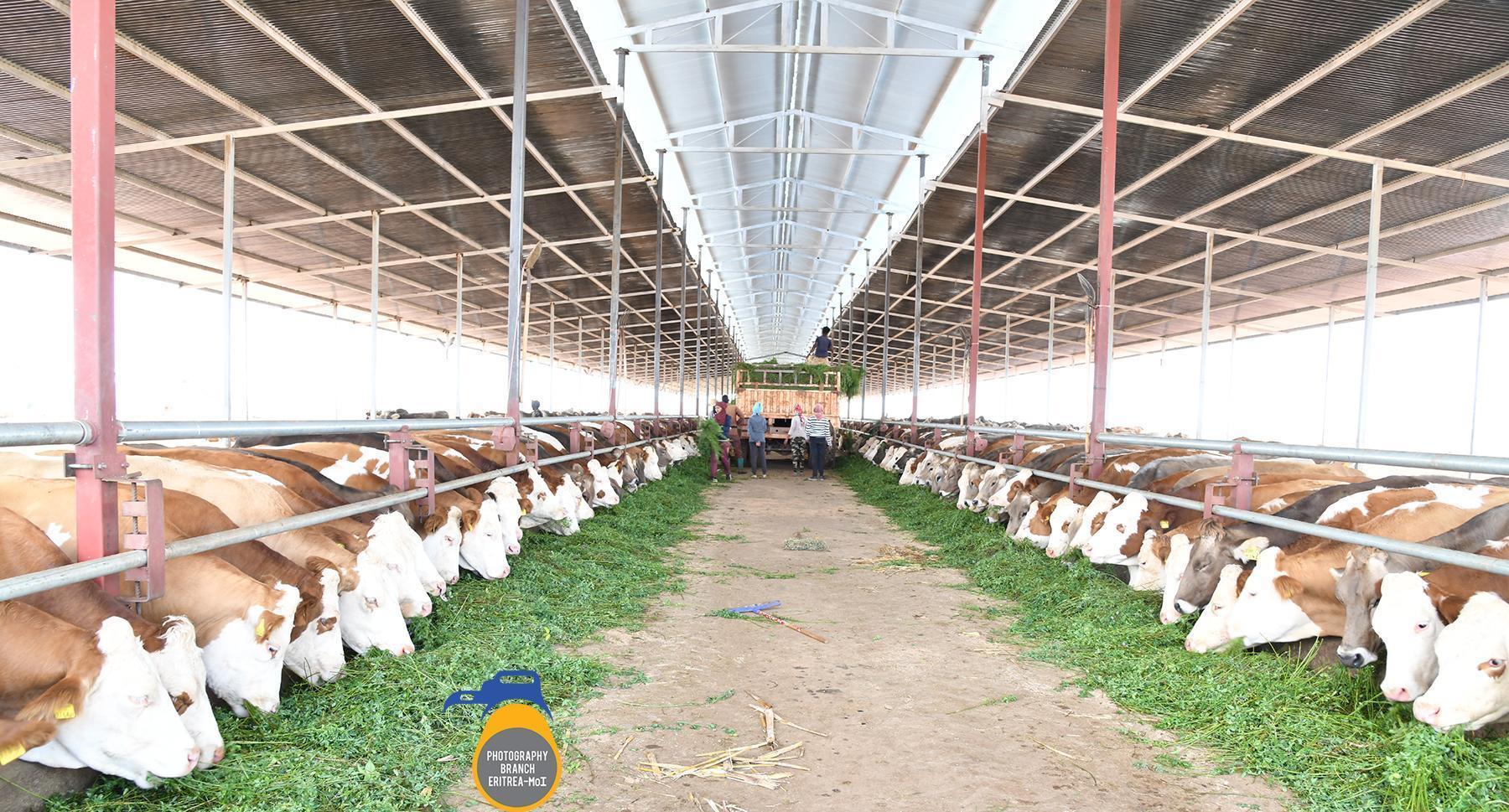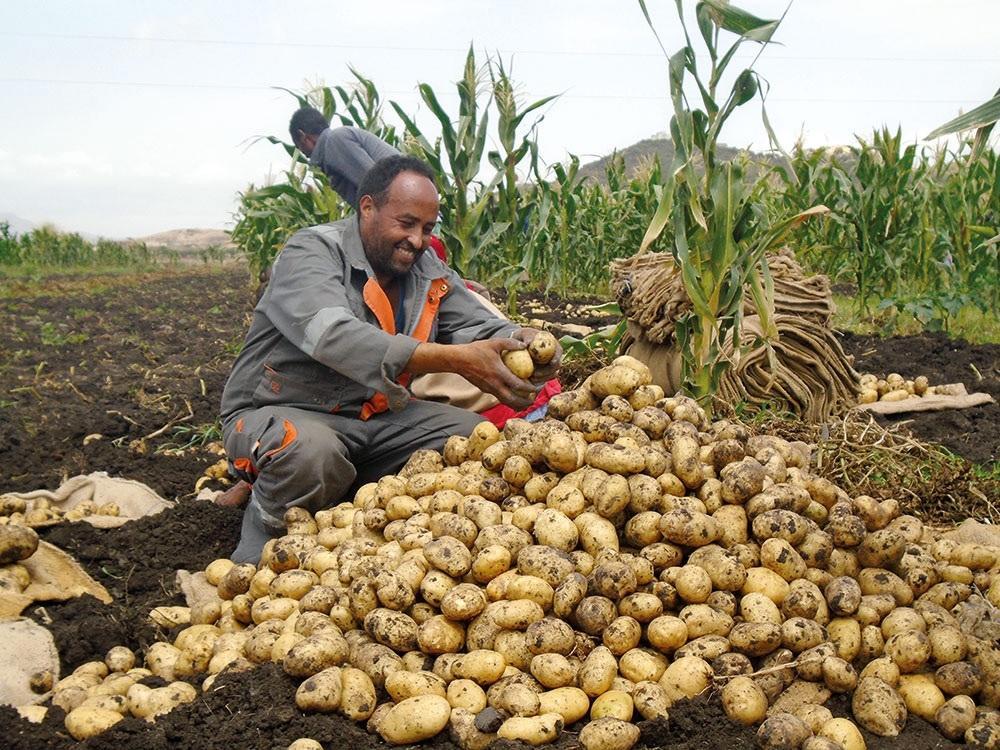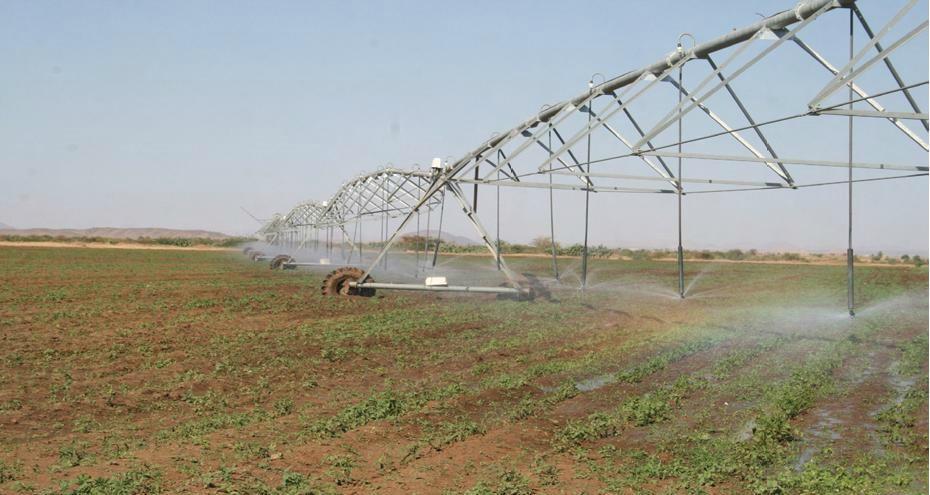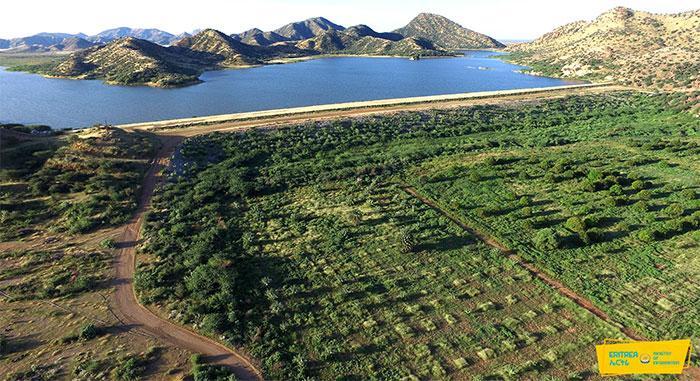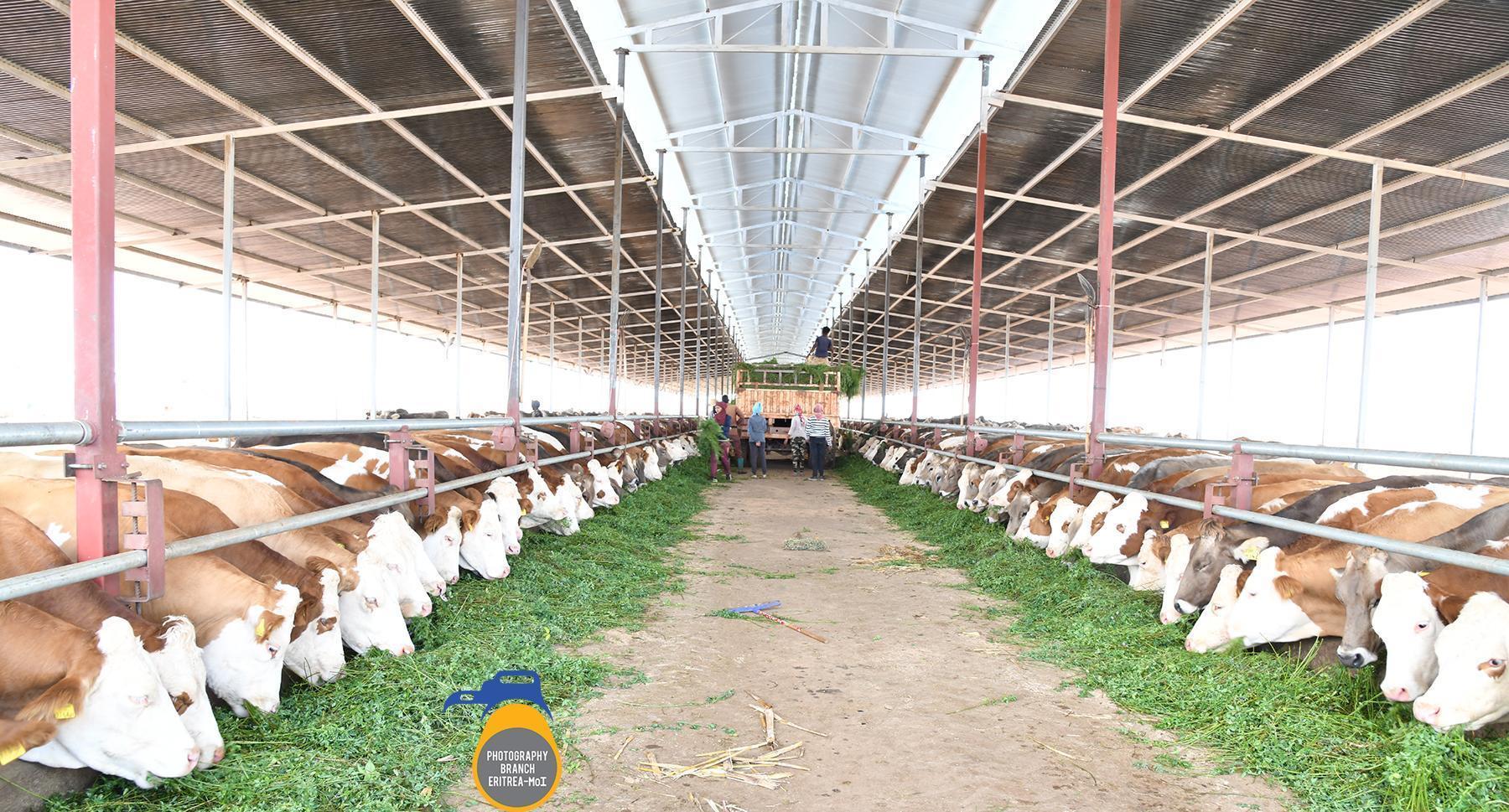Africa-Press – Eritrea. Building a climate-resilient agricultural infrastructure
Since achieving its independence in 1991, Eritrea has placed food security, at the core of its national development priorities.
Geographically located in the Sahel region and within the Horn of Africa, Eritrea is characterized by an arid and semi-arid climate with erratic and limited rainfall. This makes the country particularly vulnerable to the adverse effects of climate change. As a result, a key strategic priority has been to reduce reliance on rain-fed agriculture and modernize the sector to enhance productivity and climate resilience.
Over the past three decades, the Eritrean government has invested significantly in building infrastructure to support agricultural development. Across all regions, numerous dams, water reservoirs, terraces, and catchments have been constructed to increase water availability for irrigation and domestic use. Around many of the major dams, the government has developed access roads and storage facilities – both dry and cold – which have helped improve efficiency, expand access, and boost general productivity.
Empowering farmers through innovation and support
To further support farmers, the Ministry of Agriculture (MoA) implements various initiatives to improve agricultural efficiency and output. These include water harvesting, expanding arable land, introducing improved seed varieties, promoting modern farming techniques, combating soil erosion, and encouraging environmentally friendly fertilizers and pesticides. In addition, integrated household packages are promoted to supplement rural incomes.
Livestock health is another area of focus. Farmers nationwide benefit from a national program that provides free and compulsory vaccinations for major animal and zoonotic diseases. Since 2013, an average of 2.5 million livestock have been vaccinated annually, significantly reducing disease and mortality rates.
Capacity-building is also central to the sector’s advancement. Technical experts and extension agents from the MoA and the Hamelmalo College of Agriculture regularly conduct hands-on training and consultations nationwide. Again, these services are delivered free of charge. A particularly successful initiative is the establishment of “farmer field schools,” which create platforms for farmers to meet with agricultural experts and peers to exchange knowledge and best practices.
Eritrea launched the Minimum Integrated Household Agricultural Package (MIHAP) in 2013, demonstrating its commitment to inclusion, sustainability, and poverty reduction. Under this initiative, each rural household receives a comprehensive package that includes: one improved dairy cow or 12 goats, 25 chickens, two beehives, 20 trees (fruit, leguminous, and firewood varieties), a vegetable garden, crop land, and access to modern agricultural inputs and training. Thousands of households – and many headed by women – have benefited from this support package, leading to improved food and nutrition security, reduced poverty, and enhanced self-sufficiency.
Toward a sustainable and inclusive agricultural future
In recent years, Eritrea has also developed plans to promote urban and peri-urban agriculture through innovative methods such as vertical farming, rooftop gardening, hydroponics, and aquaponics. These integrated systems aim to diversify diets and improve nutrition by combining nutrient-dense crops with short cycle livestock like chickens, rabbits, and pigs.
Furthermore, collaboration with regional and international partners, continues to contribute in strengthening research, regulation, extension services, and capacity-building. For instance, just last week, in a positive step to boost sustainable agriculture, the MoA, in cooperation with the FAO, hosted a National Agri-Business Conference to focus on seven selected commodities critical to national food systems. Under the theme “Enhancing Agribusiness for Sustainable Food Systems,” the conference served as a vital platform for dialogue and collaboration among a broad spectrum of stakeholders, aiming to drive innovation and coordinated action across the national agri-business value chain.
Conclusion
Despite several challenges, Eritrea has made meaningful progress in agricultural development and food security. This was partly reflected in the country’s inaugural Voluntary National Review of the Sustainable Development Goals (SDGs), presented at the United Nations in 2022, which noted improvements in agricultural productivity and nutrition outcomes.
Looking ahead, Eritrea’s ongoing dedication to agricultural development and its strategic investments in infrastructure, innovation, and sustainable practices places the country on a promising trajectory towards achieving long-term food security. With continued focus on climate resilience, capacity building, and inclusive initiatives, Eritrea is well-positioned to meet its population’s needs and emerge as a model for agricultural transformation in the region. By building on these foundational efforts, the nation is set to ensure a future of food security, economic stability, and self-sufficiency for all its citizens.
For More News And Analysis About Eritrea Follow Africa-Press


